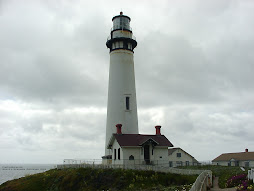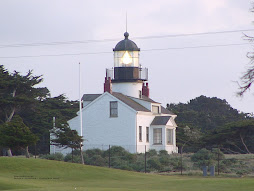Top 60 Boating Tips by Boating Magazine
Thursday, February 12, 2009
Zero Drug Tolerance and Maritime Drug Rules
My advice to every boater is to establish and print out a Zero Drug Tolerance policy, enforce it and make sure their guests are aware of it. Post it if necessary! It could save you and your vessel some really bad days and nights or more. Feel free to copy and change the one below to meet your needs.
ZERO TOLERANCE DRUG RULES
No illicit or illegal drugs may be brought on board this vessel at any time, by anyone. Drugs in this category include all compounds or mixtures that are prohibited by law, and/or are not prescribed by a licensed physician for individual use. This includes drugs prescribed for others that are taken by anyone other than the person named on the container.
Prescription drugs, prescribed by a licensed physician for treatment of disease, infection or alleviation of pain, and taken by the person for whom prescribed are not considered illegal drugs under this section.
Any person who brings prohibited or illegal drugs aboard this vessel, or who uses such drugs while aboard this vessel, will be reported to law enforcement authorities immediately upon knowledge that such activities exist.
THIS IS A ZERO DRUG TOLERANCE VESSEL.
IF YOU USE OR CARRY DRUGS, DO NOT COME ABOARD.
IF YOU DO, YOU WILL BE TURNED OVER TO LAW ENFORCEMENT AUTHORITIES IMMEDIATELY FOR ARREST AND PROSECUTION.
Safe and Drug-Free Boating!
MARPOL, Garbage, Trash. Waste and Sewage Plans
What's a MARPOL? Sounds like a new animal at the San Diego Zoo. Nope, it's the Marine Pollution Treaty, and one section that is very important to all boaters is Annex 5, regarding trash and garbage disposal in our waterways.
Primarily, MARPOL strictly prohibits the disposal of ANY plastics, products containing plastics, or their derivatives, on ANY body of water in the world. This means there can no longer be dumping of plastics at sea, regardless of the distance you are off the coast.
In addition MARPOL further restricts the dumping of trash, garbage and foodstuffs within certain limits of the United States coastline. Vessels are required to post a MARPOL plaque or sign outlining the requirements, in the same manner that vessels are required to post NO Discharge placards.
For some vessels, a trash and garbage plan is required by law. I believe it would be prudent to have such a plan available for view in the event of boarding by authorities, regardless of your vessel size, or legal requirements. It just makes good sense. And, in the event you have a guest who does not abide by the rules, and disposes of prohibited materials, you can at least show that you have made the effort to comply with the law.
Copies of a sample Trash and Garbage plan are available in some Marina Offices. These may go beyond what is required, but afford a little more protection for the environment, and you. Become familiar with MARPOL requirements, and tailor the plan to suit your needs, and meet the requirements of this international law.
The following is a simple plan I used on my vessel:
TRASH & GARBAGE PLAN
It is the intention of the captain of this vessel to comply fully with all provisions of Annex 5 of the MARPOL TREATY. In addition, it is further intended to comply fully with all trash and garbage disposal provisions of state and local law.
At NO time will plastics, or products containing plastics or their derivatives, be allowed to be dumped from this vessel. The captain and crew recognize the significant exposure to our environment that plastic materials pose, and will take every precaution to preclude this material from entering our waters.
The following rules are in effect and will be enforced at all times aboard this vessel, whether dockside or underway.
DOCKSIDE:
All trash, garbage and other disposable materials, regardless of type or composition, will be disposed of in trash containers or dumpsters provided for disposal. Trash and garbage will be kept on the vessel in plastic bags, or plastic bags in plastic cans, until disposal is required. At that time the bags will be sealed securely with plastic or wire ties, and carried to approved disposal containers or dumpsters on the shore.
UNDERWAY:
A: Rivers, Bays, Sounds and within 3 miles from shore:
All trash, garbage and other disposable materials, regardless of type or composition, will be maintained aboard the vessel for the duration it is out of port. Trash and garbage will be kept in plastic bags or plastic bags in plastic cans until full. At that time the bags will be sealed securely with plastic or wire ties and placed in the locker under the wet bar on the main deck. When the vessel returns to port, these bags will be carried to approved disposal containers or dumpsters on the shore. Simply stated, NO trash or garbage will be disposed of from this vessel when operating in the above stated area.
B: 3 to 12 miles from shore:
Garbage, consisting of foodstuffs only, smaller than one inch in size, may be disposed of by dumping overboard. ONLY those foodstuffs that meet this criteria may be dumped. All trash and other disposable materials, regardless of type or composition, will be maintained aboard the vessel for the duration of the voyage. Trash and other disposable materials will be kept on the vessel in plastic bags or plastic bags in plastic cans until full. At that time the bags will be sealed securely with plastic or wire ties and placed in the locker under the wet bar on the main deck. When the vessel returns to port, these bags will be carried to approved disposal containers or dumpsters on the shore.
C: 12 to 25 miles and outside 25 miles:
Garbage, consisting of foodstuffs only, may be disposed of by dumping overboard. Where possible, foodstuffs will be reduced to the smallest dimensions possible to reduce bulk and facilitate degradability.
As regards trash and other disposable materials, this vessel will adhere to the same commitment as stated in section (B) above. NO trash or other disposable materials will be dumped in our oceans. All materials, other than foodstuffs will be returned to shore for proper disposal.
WASTE & SEWAGE PLAN
It is the intention of the Captain and crew of this vessel to comply fully with all laws and regulations pertaining to the discharge of waste. This vessel has no direct overboard connections from the head; all waste must first pass into the holding tank before it can be discharged from the vessel.
IN PORT & WITHIN 3 MILES OF THE COAST:
At all times when this vessel is docked, or when it is moored or anchored within three (3) miles of the United States coast, the coast of any island or other land mass within U. S. Territorial Waters, where waste disposal is otherwise restricted, or in designated "No Discharge Zones", all sanitary waste will be held within the holding tank provided on the vessel. Discharge of such waste will be ONLY to pump out stations designated for the pump out of waste from vessels, or other shore facilities as may be designated for that purpose. In NO case will sewage be discharged into the water. Where required by local law or ordinance, dye disclosing tablets supplied by that jurisdiction will be placed in the holding tank.
AT SEA:
When this vessel is underway or anchored outside the three (3) mile limit, or outside other areas as may be designated by regulation or law, waste and sewage as contents of the holding tank may be pumped overboard after first passing through the macerator pump to reduce particulate matter to minimum dimensions.
Safe (and Healthy) Boating!












